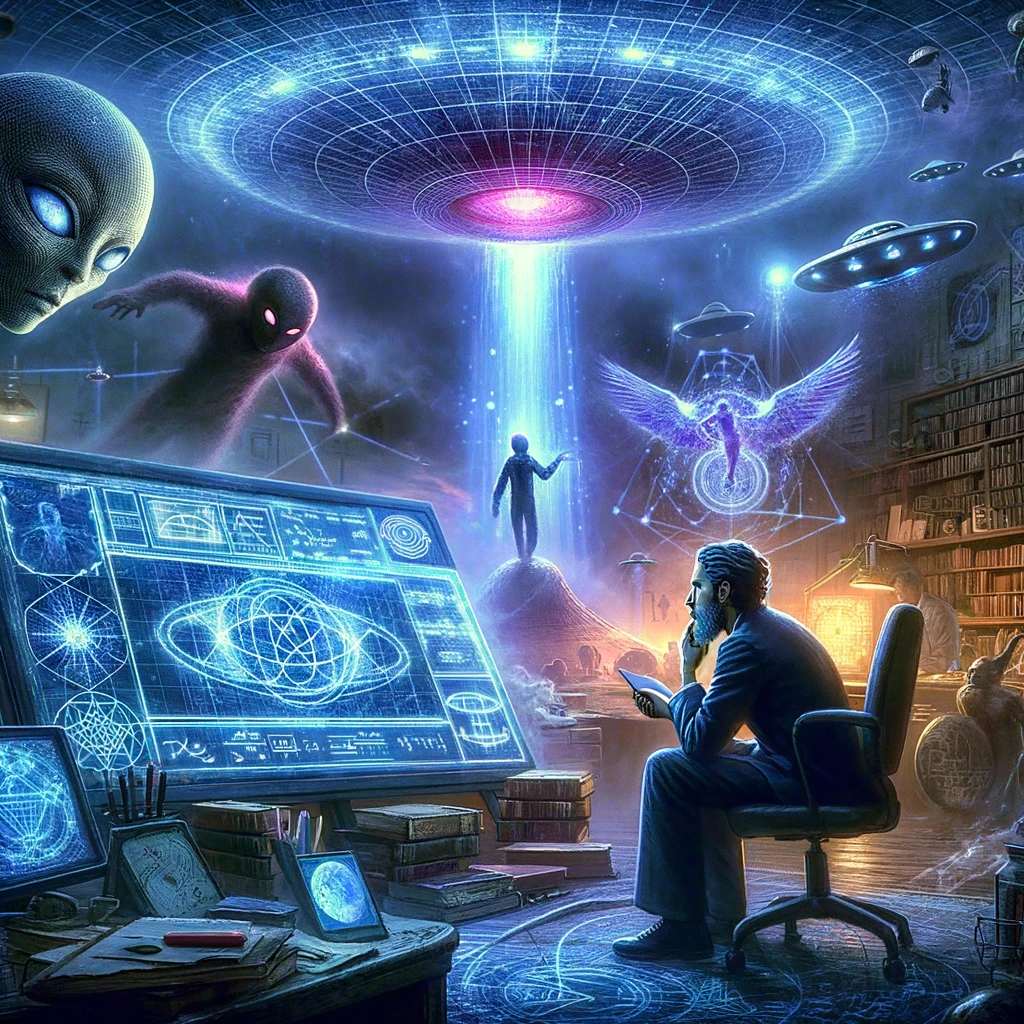Eric Weinstein on Managed Reality

In a thought-provoking discussion on the Chris Williamson channel, Eric Weinstein looks into the complexities surrounding the concept of “Managed Reality” and the forced consensus in scientific and intellectual communities. The conversation touches on the delicate balance between skepticism and openness when examining phenomena that challenge conventional understanding, such as UFOs and interdimensional beings.
The discussion articulates a nuanced perspective on the UFO discourse, expressing frustration with the compartmentalized nature of information within government entities. The discussion emphasizes the difficulty lawmakers face in extracting clear answers without asking the “precisely right question” to the “precisely right person,” underscoring the challenges inherent in navigating classified or sensitive information. This situation is further complicated by the specialized knowledge required to even formulate such questions, highlighting a barrier to meaningful inquiry in fields outside one’s expertise.
The conversation shifts to the personal account of David Grusch, whose claims about interdimensional beings and holography. Weinstein defends Grusch, suggesting that he was merely conveying complex ideas presented to him, rather than endorsing such theories. This instance serves as a microcosm of the broader issue of how unconventional ideas are received and treated within both the scientific community and the public discourse.
Weinstein also reflects on the broader implications of the UFO narrative, pondering the existence of long-standing government programs labeled under the UFO umbrella. He speculates about the dual nature of these programs, which could either be a smokescreen for various clandestine activities or genuinely related to non-human intelligence. Despite the lack of concrete evidence for extraterrestrial craft or beings, Weinstein acknowledges the “tremendous circumstantial evidence” suggesting the existence of such secretive programs.
The challenges of navigating information gatekeeping was discussed, and the endless possibilities that lie at the frontier of human knowledge and understanding. It’s a compelling exploration of the limits of our understanding and the potential for an untrue “Managed Reality” to shape our perception of the world around us.
Weinstein, expressed skepticism about conventional explanations for UFO phenomena, suggests that traditional physics, such as general relativity, may not be sufficient to understand potential interstellar travel by aliens. They propose that the constraints of current physics theories, despite their accuracy, act as a straightjacket, limiting creative thought and exploration of alternative explanations or theories.
The conversation then shifts to a broader critique of what Weinstein perceives as a pervasive culture of dishonesty and “managed reality” in various domains, including physics, economics, and public policy. They argue that society is often instructed to ignore or dismiss evident issues and contradictions, likening this to a directive to “pretend” there is no problem. This critique extends to the scientific community and experts who are discouraged from challenging established norms or presenting alternative theories.
Weinstein frustration is palpable as they discuss the lack of rational response to claims of UFO sightings and other contentious global issues. Weinstein questions why there isn’t more urgency or skepticism in addressing such claims, particularly when they have implications for national security and scientific understanding. The dialogue underscores a deep concern for the integrity of scientific inquiry and the importance of open, critical examination of extraordinary claims, free from the constraints of conventional wisdom or political agendas.
According to Weinstein, understanding Riemannian manifolds can be crucial for comprehending UFO phenomena. These mathematical constructs are essentially smooth spaces that come with a specific way to measure distances, angles, and volumes that can change from one location to another. This framework is particularly important in understanding the complex geometries and physics that could theoretically underpin the movement and behavior of unidentified flying objects (UFOs). By grasping the principles of Riemannian manifolds, which are central to advanced topics like differential geometry and general relativity, one might gain insights into the potentially advanced propulsion and navigational systems of UFOs, which could operate beyond the conventional understanding of space and time as we perceive it in our everyday, Euclidean-based perspective.
According to Weinstein, the understanding of the concept of a determinant line bundle is significant. This concept involves associating a one-dimensional vector space with every point in a space, with these associations changing smoothly as you move from one point to another. Grasping this mathematical principle is essential for comprehending the sophisticated geometrical structures and physical theories that might offer insights into the high-level technologies or unusual occurrences reported in UFO sightings.
The segment explores the tension between established scientific theories and the unexplained phenomena that challenge them, as well as a broader societal issue of how truth and evidence are managed and perceived in public discourse.


